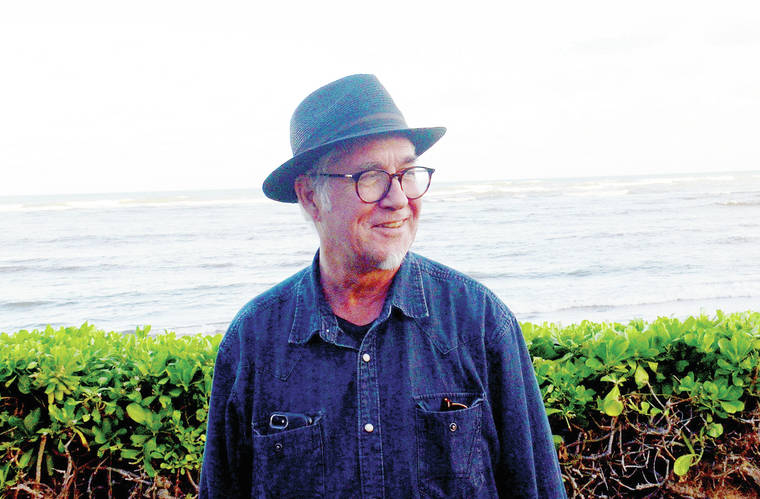Dead Kennedys, a band that helped define hardcore punk rock in the 1980s, is playing tonight in at Anaina Hou Community Park in Kilauea.
By the end of the 1970s, Geoffrey Lyall, known as Klaus Flouride, had been playing music professionally for over a decade in bands from Detroit to Boston to San Francisco, which is where he landed in the summer of 1978, when he answered a magazine ad seeking musicians.
“The ad said, ‘Looking to start a punk rock band. Contact Ray, East Bay,’” Klaus said during an interview Wednesday.
“I didn’t know that ‘East Bay’ wasn’t part of his name,” Klaus said, laughing.
Later, when he explained the mixup to the man who would become his bandmate for the next eight years, Raymond John Pepperell became East Bay Ray.
“I didn’t know much about punk rock at that point,” Klaus said. “And nor did Ray.”
Klaus and Ray were undeterred and set about putting together a band they hoped could sound like some of the early punk bands that turned them on — the Ramones or the Sex Pistols — but was somehow different.
Klaus said Ray took him out to the garage of his rental house in Oakland, where they played “Peggy Sue,” a Buddy Holly single that had been a hit two decades prior. When asked why two guys trying to play punk music would start off jamming to a 1950s rock record, Klaus explained a concept that may be key to understanding the evolution of punk rock as a genre.
“Peggy Sue — I mean, you listen to The Ramones, and it’s basically the same thing, when you think about it,” he said. “Punk, I mean, especially the Ramones were totally a pop band. They just had different fashion.”
The two men hit it off and started searching for other musicians to help fill out their band. Ray had already met Eric Reed Boucher, a.k.a. Jello Biafra, who he had in mind for lead vocalist, telling Klaus, “There’s this other kid that seems to have a good feeling for it.”
They made an audition tape with a drummer who tried out. The guy sounded OK, but the look was off.
“We tried out drummers like crazy, and we got one guy who was a decent drummer, but he had iron crosses and swastikas tattooed all over,” Klaus said. “We were trying to figure out, ‘How are we gonna say no to this guy?’ He said no to us, which was great.”
They met Carlos Cadono, the man who eventually became the band’s rhythm guitarist, on accident.
“The guy who ended up being second guitarist, ‘6025,’ posed as the drummer for the pictures, and we found out he played guitar also, so he got into the group,” Klaus said. “And then, two weeks before the gig, we got the drummer who became Ted, and he was the first guy to rush our songs, and we said, ‘OK, that’s good.’”
They started practicing, scrambling to put together a set list for the gig. They came from different backgrounds but all five guys shared similar tastes and ideas about the music they wanted to make.
“We knew we wanted to sound different, so we could use our musician stuff for extreme things,” he said. “But basic punk was — I mean, the Sex Pistols and the Ramones were just doing basic punk progressions. Just louder and harder, that’s all.”
The Dead Kennedys first show was supposed to be a 20-minute set, but Klaus said they ran through all the songs in about 12 minutes “cause we were so amped up.” It didn’t matter. They just started over and played the first song again.
“I don’t think we got paid anything,” Klaus said. “We mighta got paid about $50, but I don’t think so. We were fifth billed on a punk show. Can you imagine how much money there is?”
Dead Kennedys would go on to release four commercially successful records over the next seven years. Their debut album, “Fresh Fruit for Rotting Vegetables,” released in 1980 was certified gold on the U.K. charts and was included on Rolling Stone magazine’s 40 Greatest Punk Albums of All Time.
The band broke up in 1986, and Klaus moved onto solo projects as a producer and musician for the next 15 years, until 2001, when the band reunited and started touring again. East Bay Ray and Klaus Flouride are the only original members left, but Klaus said he was shocked at how quickly the band came back together and how easy it was for him to pick up where he left off.
“I hadn’t had that much fun in other bands,” he said, explaining that the Dead Kennedys’ songs he loved to play 40 years ago still have “more energy than any music I’ve played before or since.”
Doors open at 5:30 at Porter Pavilion. Concert starts at 6:30. Tickets are $50 at the door, $42 at eventbrite.com.


